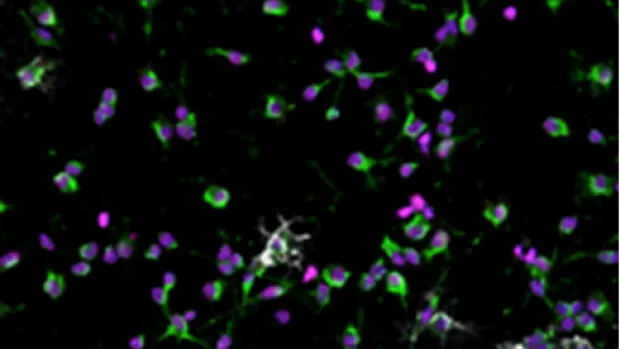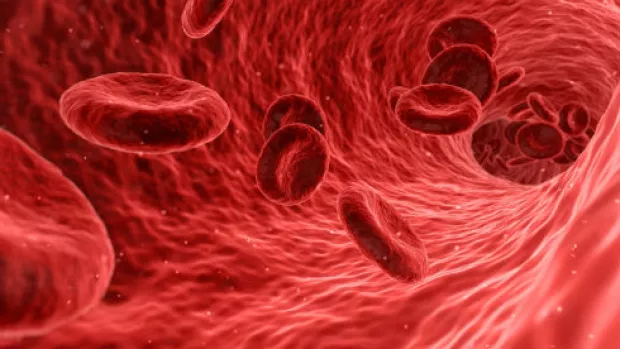
MS researchers identify new switch for brain repair
New research has found a key molecule in the brain important for repairing myelin damage.
Our researchers at the MS Society Edinburgh Centre for MS Research have uncovered a switch in the brain and spinal cord that can promote myelin repair.
A new path to myelin repair
Dr Veronique Miron and her team previously showed that a protein called activin-A is important in remyelination, but it was unclear how it worked.
Their new research, published in the journal Acta Neuropathologica, has found the exact switch in cells that it triggers. Studies in mice showed that when this switch, or receptor, is turned on by activin-A, it increases the number of myelin-making cells. This boosts myelin repair.
A myelin repair switch in the human brain
The researchers used tissue from the MS Society Tissue Bank to look for the ‘receptor’, called Acvr2a, in MS brain lesions.
In tissue from people with progressive MS, they found that levels of Acvr2a were higher in areas where myelin repair was active. But, in MS lesions where no myelin repair was taking place, levels were lower.
A new treatment target for MS
Researchers will now look for drugs that can target Acvr2a to promote myelin repair. These could then be developed into treatments for people with MS.
Senior author Dr Veronique Miron, said:
“When we first discovered this protein activin-A, we didn’t know exactly what role it played in remyelination. We now know it binds to a specific receptor, which then causes cells to carry out myelin repair.
“This is a really exciting discovery because can now focus our efforts on developing drugs that target the receptor. If we can do that, we can encourage cells to make new myelin after damage has been done in MS.”
Dr Susan Kohlhaas, our Director of Research, said:
“We’re thrilled to be supporting Dr Miron’s ground-breaking work. Many of the 100,000 people living with MS in the UK still don’t have any treatment options. Finding new targets like this receptor mean we’ll be able to develop more effective treatments and stop MS faster.”



